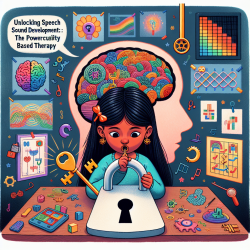The growing emphasis on mental health literacy underscores the need for effective tools to measure mental health knowledge. A recent systematic review titled Measurement properties of tools measuring mental health knowledge: a systematic review provides valuable insights into the effectiveness of various measurement tools. This blog aims to help practitioners enhance their skills by implementing the research outcomes or encouraging further exploration.
Understanding the Importance of Measurement Tools
Mental health literacy is crucial for promoting early identification and treatment of mental disorders. It involves understanding how to maintain good mental health, recognizing mental disorders and their treatments, reducing stigma, and enhancing help-seeking behaviors. Effective measurement tools are vital for assessing these components and guiding interventions.
Key Findings from the Systematic Review
The systematic review evaluated 16 mental health knowledge tools across 17 studies. These tools were assessed for reliability, validity, responsiveness, and measurement errors. The findings revealed a mixed quality of methodological approaches and evidence strength across studies:
- Content Validity: Six tools demonstrated strong evidence for content validity or internal consistency.
- Internal Consistency: Moderate evidence was found for the internal consistency of eight tools.
- Reliability and Structural Validity: Limited evidence was noted for reliability and structural validity in several tools.
The review highlighted that while some tools showed excellent methodological quality, others were rated as poor or fair. This inconsistency suggests a need for careful selection and application of these tools in practice.
Recommendations for Practitioners
Practitioners should consider using tools with strong or moderate evidence of measurement properties. The review suggests prioritizing tools that meet the COSMIN checklist's positive ratings threshold. Here are some recommendations:
- Select tools with strong content validity and internal consistency for reliable assessments.
- Utilize tools with moderate evidence cautiously, ensuring they align with specific intervention goals.
- Avoid using tools with conflicting or unknown evidence without further validation.
Encouraging Further Research
The systematic review underscores the need for ongoing research to validate and improve existing measurement tools. Practitioners are encouraged to engage in research activities to contribute to this evolving field. By doing so, they can help refine these tools and ensure they remain relevant across diverse cultural contexts and populations.
Conclusion
The findings from the systematic review offer valuable guidance for practitioners seeking to enhance their skills in mental health literacy interventions. By selecting appropriate measurement tools and contributing to further research, practitioners can play a pivotal role in advancing mental health outcomes.
To read the original research paper, please follow this link: Measurement properties of tools measuring mental health knowledge: a systematic review.










